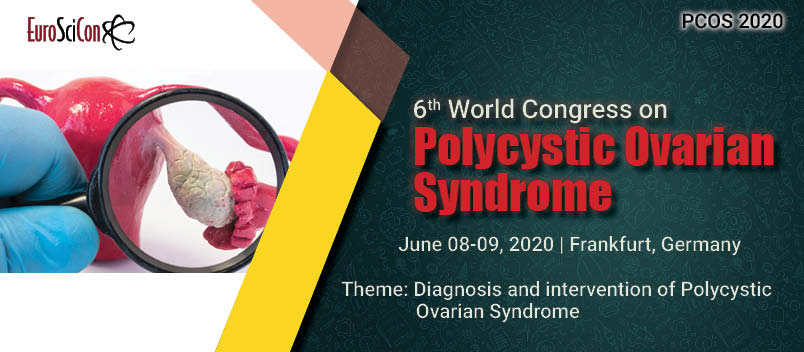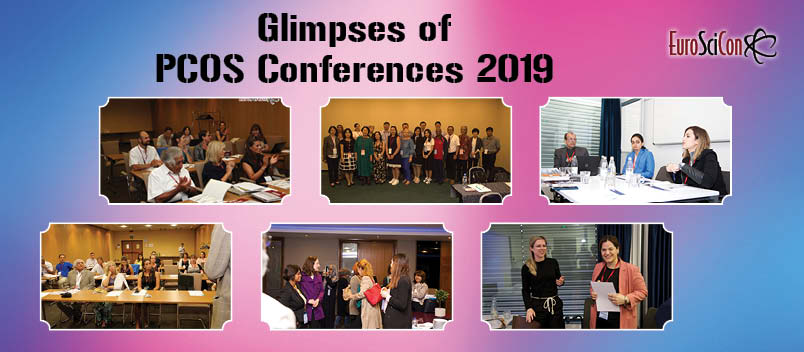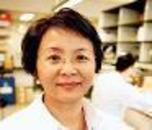PCOS 2020
About Conference
A meet of 6th World Webinar Congress on Polycystic Ovarian Syndrome is going to be held during June 8-9, 2020. It's extremely a great pleasure to welcome all the researches of their separate work on PCOS, scholars, it's an extraordinary chance to go to this meet what investigates the information about the turmoil of PCOS and it's an exceptionally awesome benefit to have key speakers who will investigate their perspectives about the PCOS. The remarkable congress that which gives the book loaded with attention to the ladies about the PCOS. The meet is going to comprehend the Polycystic Ovarian Syndrome. It's an unmistakable stage for analysts to comprehend that how it causes?what are the things to work out for the end of this issue we do have an oral talk, poster presentations; e-poster introductions, workshops and we welcome Gynecologists, Endocrinologists, Obstetrics, Embryologists, Endoscopic Surgeons, Infertility specialists, Gynecological Oncologists, Researches around the globe to have concentrated reasonable view about the turmoil. PCOS 2020 which displays the fundamental information about the polycystic ovarian syndrome, and it gives a major clean stage to the rising advances what gives a decent opportunity to the understudies to have a propelled learning. The universal regular meet of PCOS changes to happen about the Global data of the Polycystic ovarian syndrome by the famous speakers that which gives propelled medicines and the distinctive systems to overcome the confusion. This makes the live gushing for the up and coming and the sprouting specialists and researchers.
Sessions & Tracks
PCOS 2020 Session Tracks
Track 1: Polycystic Ovarian Syndrome
Polycystic Ovarian Syndrome is triggered by hormonal secretion imbalance, The elevated levels of endocrine internal production within the duct gland ends up in the excessive release of endocrine within the blood levels that ends up in the impact of ovaries. As the name of PCOS itself phrase that PCOS is formation of variety of cysts within the ovary that causes the PCOS syndrome, Polycystic sex gland Syndrome is a condition with elevated levels of Androgenic Hormone (male Hormone) in females, that is characterized by irregular catamenial cycles, acne, significant periods, Excess body and facial hair. PCOS is a disorder of internal abnormal conditions of ovaries. 8-15% of women with procreative age square measure largely Affected. It is additionally referred to as Stein-Leventhal Syndrome. Women during in this condition square measure at higher risk of high blood pleasure, cardiovascular disease and female internal reproductive organ cancer known as (Endometrial Cancer). Most women with PCOS have several cysts on their ovary.
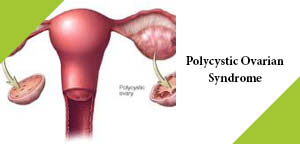
Track 2: PCOS and Fertility
Fertility can be affected with a Polycystic ovarian syndrome, when it is caused by factors like an excess production of androgens called male hormones, Insulin levels along with inflammation causes anovulation. Anovulation is a process of inability to release an oocyte due to irregular menstrual cycles. This impediments caused by irregularity of menstruation can cause menopause to a women under control and women suffering from PCOS, if this process of disruption in ovulation continues it’s hard to become pregnant for women which can cause difficulty in getting pregnancy which may lead complication to get pregnant and most of the hormones become unbalanced results in making hard to carry a baby.
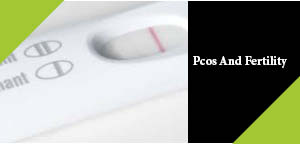
Track 3: PCOS-Women Health
The women who are dealing with the polycystic ovarian syndrome have side effects like Diabetes, Obesity, Obstructive sleep apnea(OSA), Heart diseases, Mood disorders and Endometrial cancer will be the cause of ovarian syndrome to women having premenopausal /postmenopausal, the major function in blood varies is that the insulin resistance gets developed an increase in blood glucose levels in the body this can be known by conducting the blood tests of insulin levels. Excess blood Glucose leads to the bookmark of TYPE-2 diabetes in patients. PCOS is the most common hormonal disorder in women with childbearing and can lead to issues with infertility, do these reasons the women who are suffering from weight loss or weight gain. The women who are more sensitive to insulin or resistance to insulin which was caused by the hormonal imbalance are more promptly prone to the obese or overweight that which keeps the patient at higher risk of heart diseases, sleep apnea, and uterine cancer. The obstructive sleep apnea is associated with the metabolic disorders of the of the insulin that which caused by the intolerance of the glucose levels in bloodstream, the main symptom of OSA is restricted sleep altogether during the night times, the early stages of this OSA is snoring at the night times and have irregular sleep, and that can cause effects of the quality of sleep towards the patient associated with the PCOS. No such women suffering from PCOS will experience the same symptoms the condition of women with PCOS has several disorders which are occurred due to the polycystic ovarian syndrome, PCOS is not just related with the endocrinological disorders it is also associated with emotional and mental conditions like Anxiety, depression, difficulty in concentrating, fatigue, mood swings and chronic stress. Zinc plays a vital role in building immunity for women suffering from PCOS that results in infertility and also involves in the improvement of fertility.
- Anti-depressants
- Comparative studies of Allopathic and Homeopathic Medications
- Advanced treatments to Improve Fertility
- Health In Pregnancy
- Maternal and Child Health
- Histopathology of ADHD
Track 4: Endometrial Cancer
Endometrial Cancer is a type of cancer begins within the ovaries which are sized of almond that which involves in producing of eggs. Endometrial cancer arises from the endometrial layer (the lining of the uterus/womb). This is caused by the abnormal growth of the cells that which have a capability to spread and invade the normal cells and functioning of the other systems. Sometimes it is also referred to as uterine cancer. This is the type of cancer in which relatively known as Endometrioid carcinoma. The main symptom of this cancer is vaginal bleeding which is not associated with the menstrual cycle, and this endometrial cancer often mostly occurs after menopause. We can also consider that the cancer is caused by the excess exposure of uterine walls to the estrogen levels. While considering the cause of this cancer 2-5% cases are related to the genes inherited from the parents. Prolonged menstrual cycles more than 35 days may become severe condition which leads patient to endometriosis.
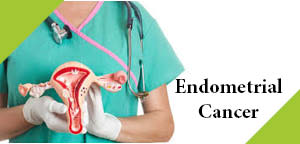
Track 5: PCOS Associated Organs
Most of the women suffering from Polycystic Ovarian Syndrome have a direct effect on nearer or interrelated major organs which is usually caused by Hyperinsulinemia, this hyperinsulinemia will adversely affect's major organs. in order of increase in regular alterations of PCOS in women it leads to various disadvantages to the major functioning organs due to increased levels of Androgen Hormones in the body that which influencing the higher risk factor to the patient and leads patient to the severe condition in which it leads to the patient medical profiles with various diseases that cause side effects to the other organs in the system. Women at this condition may experience severe complications in feeding babies after giving birth due to decreased levels of estrogen that which is the major factor which obstructs by making less estrogen into mammary tissue building. Some of the major factors that evolve Autism in a child of a mother suffering from Polycystic Ovarian Syndrome. Women who are prone to PCOS may have several neuronal defects which can cause psychiatric disorders in the stage of pre or postnatal span. These psychiatric impediments in women with PCOS are often related to irregularities in menstrual cycles.
- Natural curative remedies/Treatment
- Clinical Assessments of Polycystic Ovarian Syndrome
- Advanced medication of Homeopathy
- Ayurvedic Treatment
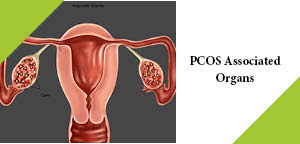
Track 6: In vitro Fertilization
In vitro fertilization can be described as an assisted reproductive technology or medical treatment for a woman to conceive. Invitro fertilization took a step to take part in the procedure of monitoring and stimulating women’sovulatory Process by extraction of sperm sample from father and egg from mother and letting them combine and allowed for fertilization to form an embryo. Once the formation of embryo completed this newly formed embryo will be implanted into the mother’s uterus this implantation causes women to get conceive easily because the eggs have been fertilized by sperms outside the normal biological process. It is also a called as a type of assisted reproductive technology in which mostly used for the treatment of infertility treatment.
- pregnancy Intravaginal Culture
- Pre- implantation Genetic diagnosis
- Testicular Sperm extraction (TESE) & Percutaneous Epididymal Sperm Aspiration (PESA)
Track 7: Fertility Management & Treatment
High levels of male sex hormones (Androgens) and irregularity in the production of sugar levels in the bloodstream causes insulin resistance can adversely affect menstrual cycle and prevent the release of an egg on a regular basis and can even stop completely or irregularly. This condition makes more difficult for women suffering from polycystic ovarian syndrome to have their easy pregnancy and it is more difficult for those women to conceive, sometimes it can lead to miscarriage. Women in some criteria may also experience reduced fertility or sub-fertility which requires further medical assistance. 60% of women suffering from PCOS become pregnant without any medical assistance.
- Monitoring Ovulation
- Surgery for Improving Fertility
- Assisted Reproductive Technology
- Various Medications
- Weight Management
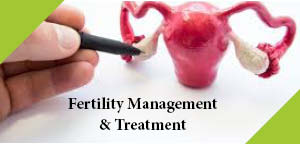
Track 8: Fertilization Techniques
Fertilization is the process of combining male gamete and female gamete which results in the formation of zygote in 10% of male suffering from infertility with Spermatogenesis disorder due to drastic alteration in their lifestyle, surroundings or environmental factors and Hormonal imbalances most of the couple i.e., 17.2% couple in 30% are not supposed to have a child. There are numerous reasons to evaluate that causing infertility either in male or female of that certain couple. To get fertile various modern inventive techniques has been introduced. Since these methods are based on the steps or procedure of in vitro improvement in Semen quality to over the natural barrier of fertilization. Techniques include various process on their own specific indications.
- Gamete intrafallopian transfer (GIFT)
- Intracytoplasmatic injection of sperm (ICSI)
- Microsurgical aspiration
- Genetic Testing Track 8-5Hormonal Testings
- Zona pellucida drilling
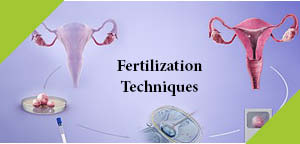
Track 9: Immunological Approaches of fertility
Immune infertility has become a severe health issue involving 1 in 5 women under normal conditions; moreover, women with the polycystic ovarian syndrome has become very frequent. Semen that is known as the composite fluid which contains sperm, cellular vesicles, and other cell components, this semen could be a reason for sensitization of female genital tract. Natural tolerance of female regenerative tract by the immune rejection of male semen which is a prior factor leading to local or systemic response. Iso-immunization is also associated with infertility. Numerous specific components of the regenerative system which do not represent in other body systems those many of are immunogenic efforts. The major advantage involved in the immunological approach of fertility is very effective or potential for women who are infrequent administration by a specialist's trained people who could deliver antifertility services.
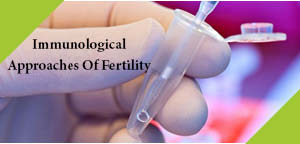
Track 10: Fertility and Infertility – Women
Fertility can be defined as the women have hormonal cycles that which determine when they can achieve pregnancy, the capability of women to produce an offspring called fertility. Fertility declines in order with age progression in both men and women. Woman generally have a high rate of losing fertility around the age of 45-50. which can be measured through fecundity (Potential for reproduction). Infertility primarily refers to the inability of women to produce or conceive a child after 12 months or feeling difficulty to get a pregnancy to full term. There are no such definite factors to evaluate the cause of infertility it depends on the hormonal imbalances but the main symptom of infertility include, inability to get pregnant, irregular menstrual cycles, hormonal complications such as hair growth, sexual function. Factors causing infertility include.
- Age
- History of sexually transmitted infection
- Irregular periods
- Anti- Cancer Drugs
- Body weight and Exercise
- Tobacco and alcohol use
- Anti- Hypertensive
- Anti- Diuretics
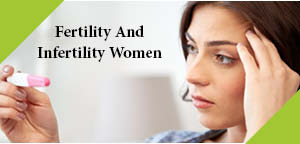
Track 11: Drugs in PCOS
Efficient drugs which are mostly preferred in the case of patients suffering from Polycystic Ovarian Syndrome are associated with several other disorders of various organs. PCOS requires first-line treatment for fertility. Drugs mostly suggested by the gynecologists for the fertility are Clomid (Clomiphene Citrate), and major drugs used in the case of blood glucose levels, diabetes, high blood pressure and high blood sugars. Several other drugs include various disorders regulated by the polycystic ovarian syndrome associated with major organs.
- Anti-depressants
- Anti-Inflammatory drugs
- Anti-Diabetics
- Anti- Cancer Drugs
- Anti-Hypertensive
- Diuretics
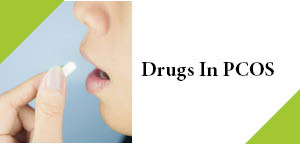
Track 12: Bariatric Surgery in PCOS
Bariatric surgery is a varied procedure which is mostly preferred for the patients who have obesity which was caused by excess fat deposition, this bariatric surgery is helpful to gain weight loss by reducing the size of the stomach with the gastric band. On consideration of women suffering from polycystic ovarian syndrome have several effects on their endocrine system, they experience the decreased ovarian volume and biomarkers of androgen excess levels. A specific study has been evaluating that women among 15% of women with PCOS 3% are observed who underwent the bariatric condition and observed for the pre-and postoperative weight loss and testosterone levels, BMI, Ovarian volume, fasting glucose and weight. outcomes of surgery suggest that a woman after bariatric surgery shows the resolution of the PCOS key conditions. Thereby the study results in the decreased in symptoms after having bariatric surgery is encouraging, but such surgery is an extreme remedy and only appropriate for a few. A New method to decrease weight by taking bariatric surgery pill which is formulated using bioengineering methods.
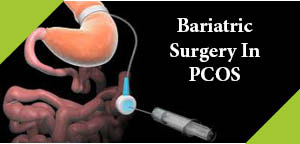
Track 13:Obstetrics and Gynaecology
Obstetrics is generally known as the branch that which deals with the study of pregnancy, childbirth and the postpartum period. based on the consequent changes in the surgical methods it is combined with the Gynecological department and it is fairly known as obstetrics and gynaecology as a surgical field. This field of obstetrics is correlated with gynecological conditions like Polycystic ovarian syndrome (PCOS) which has a vast and varied relationship with the women bearing pregnancy this PCOS consequence has an utmost effect on reproductive women. like elevates the impediments to a woman to get pregnant there are several factors which include PCOS and causing an obstruction for the pregnancy, the major factor is excess insulin production in a circulatory system that which leads to the decrease in metabolism, Thereby causes dysfunction of pancreases. Women with PCOS can experience Gestational Diabetes, Preeclampsia. This leads to the maternal mortality the main causes of the maternal mortality are maternal bleeding & maternal sepsis. There is no difference between symptoms and complication /Discomfort of pregnancy.
- Prenatal Care
- Postnatal Care Track
- Obstetric Ultrasonography
- Obstetrical Complication
- placental abruption
- Placental praevia
- Placental accrete
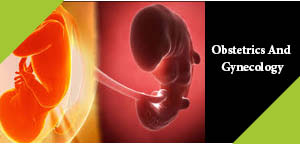
Track 14:Postnatal Depression
Postnatal depression can be described as a type of mood disorder after childbirth which is well known as postpartum depression (PPD) which was regularly observed in women who are in relation with PCOS neither after giving birth to a child. The initiation or stimulation of (PPD) is unclear this condition is mainly including some characters which are probably in turn factors of causing PPD to include mood disorders, irregular functioning of hormones, and behavioral changes can be a major factors of PPD and similar consequent disorders which may cause the direct attack to the brain that which leads to neuronal disorders. this Postnatal /Postpartum depression is not limited to the mothers it also related to the father; this can happen in 1 in 10 men who had a negative/traumatic birth experience.
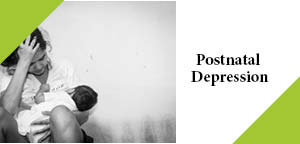
Track 15: PCOS Advanced Research
Effective study about the PCOS gives that it is caused by abnormal functioning of hormones and by the metabolic endocrinological disorder. There are more research works are process on the investigation to find the exact arise of the disorder and the partial way to sustain the further action worsened by the PCOS. The recent research work on plant product called Resveratrol- product obtained from the plant synthesis. Resveratrol has a property of Anti-oxidant most of the plants contain a type of phenol called phytoalenin (which was observed in plants like raspberries, grape & peanuts), obtained from plant tissues in response to invading fungus and stress and it also had a clinical feature of inflammatory properties it involves in the reduction of coronary heart diseases and it shows an effective work of fighting against cancer. Resveratrol drug is administrated into the systemic circulation of the women fighting with PCOS that may show an effective work against the hormonal imbalances. Evaluation can be done by taking the blood sample of the patient after 3 months of treatment for the determination of testosterone levels and other androgen hormone levels in the blood that which shows the development/ implementation of the syndrome. This defines the alteration of the implement. Taking natural diet like almonds, milk, and veggies can help to improve fertility and makes normal hormonal function.
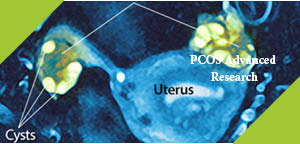
Track 16: Current trends in the treatment of PCOS System
Metabolic syndrome is most common in patients with polycystic ovary syndrome when it is compared with the overall population, and patients with polycystic ovary syndrome are four times more likely than the general population to develop type 2 diabetes mellitus. Treatment of PCOS is individualized based on the patient's presentation and desire for pregnancy. For patients who are having overweight for them weight loss is recommended. Clomiphene and letrozole are first-line medications for infertility. Metformin is the first-line medication for metabolic manifestations, such as hyperglycemia. Hormonal contraceptives are the best treatment for irregular menses and dermatologic manifestations.
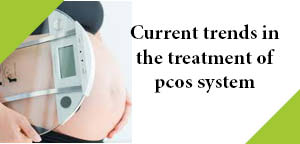
Track 17: Pregnancy Hypertension
Hypertension is the major medical problem comes upon during pregnancy, complicating up to 15% of pregnancies. Hypertensive disorders during pregnancy can be classified into 4 types such as Chronic Hypertension, Gestational Hypertension, Preeclampsia and Eclampsia. Hypertensive pregnancy disorders represent the important complications of pregnancy and contribute significantly to maternal , perinatal morbidity and mortality. The main aim of treatment is to prevent significant cerebrovascular and cardiovascular events in the mother, without compromising fetal well-being.
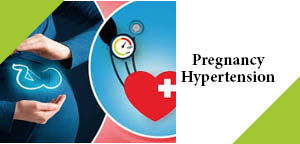
Track 18: PCOS & Stem Cell treatment
Stem cells are homogeneous cells which are capable of self-renewal (reproducing themselves) and distinguishing into different types of cells. The two main properties of stem cells are self-renewal and potency which allow them to differentiate into any kind of cells. As of late in 2004, two investigations demonstrated that ovaries do contain stem cells which form oocytes in grown-ups and that can be cultured in vitro into develop ones. Another investigation gave novel confirmation of endometrial recovery by stem cells in women who got bone marrow transplants. This finding has potential for the utilization in treatment of uterine disorders and has a potential for the use in treatment of uterine disorders. It also supports a new theory for the cause of endometriosis, which is a condition in which cells similar to those in the endometrium grows outside of it.
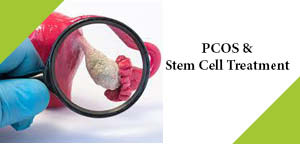
Track 19: PCOS & Pregnancy
Polycystic ovarian syndrome (PCOS) is a condition that affects between 6 and 15 percent of women of childbearing age. If you’re diagnosed with PCOS, it may be more difficult to become pregnant. And if you’re able to become pregnant, you’re at risk for more complications during pregnancy, labor, and delivery. Women with PCOS are three times more likely to have a miscarriage, as compared to women who don’t have PCOS. They are also more likely to develop preeclampsia, gestational diabetes, and have a larger baby and premature delivery. This could lead to difficulty during delivery or a cesarean delivery.
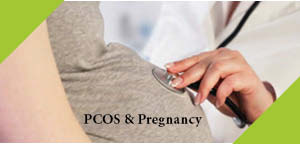
Track 20 : PCOS & Ayurveda
The ovarian cycle is governed by a hormonal feedback system moderated by the hypothalamus thus it requires constant feedback of hormonal for it to properly regulate the release of follicle stimulating hormone (FSH), lutenizing hormone (LH) from the anterior pituitary gland. The hormonal feedback that the hypothalamus is receiving is due to high levels of oestrogen that has been formed from free androgens in the peripheral tissue. Ayurveda suggests that this is vata type disorder (Apan vayu) though the involvement of other dosha can be there but in some measure because the gynaecological disorder are mainly supposed to be due to vitiation of vata.Pcos Is A Disorder Involving Pitta, Kapha, Medas, Ambhuvahasrotas & Artava Dhatu .The causes of PCOS as per ayurveda can be taken as eating excessive sweet and kaphagenic foods, mandagni because of this is kapha getting aggrevated in PCOS, we find kapha disorder. As well as pitta and vata dosha disorder. Because of all three doshas play important & distinctive role in the production, development, maturation & release of ovum & therefore the ovarian cycle & menstrual cycle is under control of three doshas .

Track 21: PCOS & Nutrition
Research has shown healthy eating habits and regular physical activity helps to manage PCOS. Eating more whole-grain foods, fruits, vegetables, lean meats and low-fat or fat-free milk, cheese or yogurt can help lower your blood sugar, improve your body’s use of insulin and normalize hormone levels. A healthy eating plan for women with PCOS includes four to five meals or snacks every day, including breakfast. Don’t skip meals. A variety of foods from all the My Plate food groups: fruits, vegetables, grains, lean protein and low-fat dairy. Moderate portions of healthy fats, such as olive and canola oils, walnuts, almonds and avocados. Protein in all meals and snacks. Try nut butters, lean meats, fish, tofu, beans, lentils and low-fat dairy products with all meals and snacks. Healthy beverages such as water, low-fat or fat-free milk or soy beverage or 100 percent fruit juice.

Track 22: Fertility surgery & IVF treatment
Women with polycystic ovary syndrome (PCOS) do not ovulate regularly. They often have trouble getting pregnant. The medicines clomiphene and letrozole are commonly used to stimulate ovulation. But medicine doesn't work for some women who have PCOS. This is because many body systems are involved in PCOS ovulation problems. Often other treatment can restore balance to the body's metabolism and hormone system, so that ovulation medicine is not needed (or works better if it is used). Laparoscopic ovarian surgery or in vitro fertilization (IVF) is sometimes used for women with PCOS who have tried weight loss and medicine, but still are not ovulating. (A surgery sometimes used is ovarian drilling. This involves partial destruction of an ovary, which can trigger ovulation.
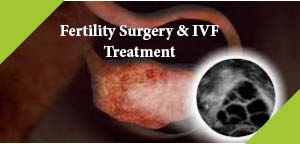
Track 23: PCOS & Obesity
There appears to be an epidemic of both obesity and polycystic ovary syndrome (PCOS) in the world today. However, obesity percentage is not a part of the phenotype in many parts of the world. Obesity is likely not a cause of PCOS, as the high prevalence of PCOS among relatively thin populations demonstrates. However, obesity does exacerbate many aspects of the phenotype, especially cardiovascular risk factors such as glucose intolerance and dyslipidemia. It is also associated with a poor response to infertility treatment and likely an increased risk for pregnancy complications in those women who do conceive. Although most treatments of obesity, with the exception of bariatric surgery, achieve modest reductions in weight and improvements in the PCOS phenotype, encouraging weight loss in the obese patient remains one of the front-line therapies. However, further studies are needed to identify the best treatments, and the role of lifestyle therapies in women of normal weight with PCOS is uncertain.
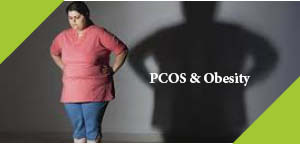
Track 24: Epidemiology and Pathophysiology
Polycystic ovary syndrome (PCOS) is a heterogeneous and complex disorder that has both adverse reproductive and metabolic implications for affected women. However, there is generally poor understanding of its etiology. Varying expert-based diagnostic criteria utilize some combination of oligo-ovulation, hyperandrogenism, and the presence of polycystic ovaries. Criteria that require hyperandrogenism tend to identify a more severe reproductive and metabolic phenotype. The phenotype can vary by race and ethnicity, is difficult to define in the perimenarchal and perimenopausal period, and is exacerbated by obesity. The pathophysiology involves abnormal gonadotropin secretion from a reduced hypothalamic feedback response to circulating sex steroids, altered ovarian morphology and functional changes, and disordered insulin action in a variety of target tissues. PCOS clusters in families and both female and male relatives can show stigmata of the syndrome, including metabolic abnormalities. Genome-wide association studies have identified a number of candidate regions, although their role in contributing to PCOS is still largely unknown.

Track 25: Midwifery Nursing
Treatment of PCOS disorder should focus on reduction of androgen-associated symptoms, the protection of the endometrium, and reduction of the long-term risks of diabetes and cardiovascular complications. For many women with this syndrome, improving infertility is a primary goal of therapy. Nurse-midwives can assess and manage many of the presenting complaints and lifestyle issues, such as menstrual disorders, hirsutism, and obesity, which are associated with PCOS. The nurse-midwife may choose to manage the more complex problems, such as infertility and insulin resistance, in collaboration with a gynecologist or endocrinologist. It is imperative that we act to prevent the far-reaching consequences of this syndrome.
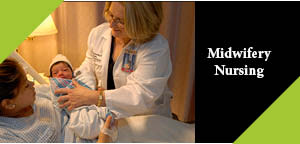
Market Analysis
Market Analysis
Importance & Scope:
PCOS 2020 deals with Polycystic and Ovarian Syndrome knowledge and characteristics, Screening, Detecting and Diagnosing PCOS, Fertility issues, Treatment, prevention and medicine. The correct reason for PCOS is obscure. For the most part, it is a hormonal issue normal among ladies of regenerative age. Ladies with PCOS may have inconsistent or drawn out menstrual periods or overabundance male hormone (androgen) levels. Awareness about the risks, symptoms and treatment is very important. Introduction of new techniques in the field of medicine as well as diagnosis is going on worldwide. PCOS 2020 give a stage to sharing of data about the PCOS treatment methods and recently created strategies for the same and in addition give stage about the on-going examines on it. This occasion incorporates incite keynote introductions, oral talks, blurb introductions and displays.
Major PCOS Associations around the Globe
- Androgen Excess and Polycystic Ovary Syndrome(AE-PCOS)Society
- Endocrine Society (USA)
- American Dietetic Association
- American Society Reproductive Medicine
- American Association Of Clinical Endocrinologists
- The European Society of Human Reproduction and Embryology
- Australian Breastfeeding Association
- Polycystic Ovary Syndrome Association of Australia
- The Association of UK Dietitians
- Canadian Fertility and Andragogy Society Polycystic Ovarian Syndrome Association
- Association for Fertility and Reproductive Health, Nigeria
Top Societies of PCOS in the World
- Androgen Excess and Polycystic Ovary Syndrome Society
- American diabetes association
- Endocrine society of Australia
Top Universities of PCOS in World
- University of Utah
- University of Athens
- Harvard University
- Monash University
- University of Bologna
- University of Adelaide
- Virginia Commonwealth University
- University of Sao Paulo
- University of Palermo
- Northwestern University
- Hacettepe University
- University of Chicago
- University of Leeds
- University of Michigan
- University of California San Francisco
- University College London
- Goteborg University
- University of Pennsylvania
- Peking University
- Yeshiva University
- Yale University
- McGill University
Top Universities in Asia
- University of Hong Kong
- Tel Aviv University
- Hebrew University of Jerusalem
- National University of Singapore
- Peking University
- Seoul National University
- Beijing Normal University
- Nanyang Technological University
- Tsinghua University
- Chinese University of Hongkong
- University of Tokyo
- Seoul National University
- Kyoto University
Companies associated with PCOS in Global
- Sanofi
- Novartis AG
- Teva Pharmaceutical Industries Limited
- Addex Therapeutics Ltd.
- BIOCAD
- Merck KGaA
- AstraZeneca plc.
- Bristol Myers Squibb Co.
- Ferring Pharmaceuticals, Inc.
- Crinetics Pharmaceuticals, Inc
Statistics which shows Market growth in importance of research of PCOS
PCOS is the commonest cause of an ovulatory infertility in women. Women may also suffer from cancer of the womb, obesity, cardiovascular disease, diabetes and hirsutism. It affects 6-20% of women in the population and the current expected annual costs of diagnosing and treating infertility secondary to PCOS in the UK range from £15million to £20 million whereas the health economic effect of PCOS in the USA effects 10-20% and has been estimated as ranging from $93 million to $1.77 billion. Although important progress has been made in our understanding of PCOS, there are still challenges in unraveling its difficulty. The analysis of PCOS is based on a combination of clinical, ultrasound and biochemical features, none of which on its own is diagnostic single unifying mechanism has yet to be found which explains PCOS, and accurate prediction of response to treatment for obesity, infertility.
Worldwide Data evaluations that the global PCOS therapeutics market was valued at $656m in 2010, and is expected to grow at a static Compound Annual Growth Rate (CAGR) of 2.6% over the next eight years, to reach $804m by 2018. Annualized seven key markets (US, France, Germany, Italy, Spain, UK and Japan) Polycystic Ovarian Syndrome Therapeutics market revenues data from 2005 to 2009, forecast for eight years to 2018.according to PCOS Therapeutics market revenue
Learn More
American Association of Gynecologic Laparoscopists | American Congress of Obstetricians and Gynecologists | American Osteopathic Board of Obstetrics and Gynecology | American Society Reproductive Medicine, Dubai Health Authority) | Family Violence Prevention Fund | International Union for the Scientific Study of Population (IUSSP) | National Abortion Federation (NAF) | Religious Institute on Sexual Morality, Justice and Healing | American College of Nurse Midwives | National Association of Nurse Practitioners in Women's Health (NPWH) | Physicians for Reproductive Health | Sexuality Information and Education Council of the United States | National Organization for Women | International Center for Research on Women | Nyanza Reproductive Health Society Kenya | Nyanza Reproductive Health Society, Kenya | ASRM - American Society for Reproductive Medicine | Association for Fertility and Reproductive Health (AFRH), Nigeria | American Congress of Obstetricians and Gynecologists Washington | Japan Society of Gynecologic and Obstetric Endoscopy , Japan | The Society of Obstetricians and Gynecologists of Canada , Ottawa | International Federation of Gynecology and Obstetrics, UK | Obstetrical & Gynecological Society of Singapore | EJOG-AJOG OBSTETRICS RESOURCE CENTRE, Netherlands | The Federation of Obstetric & Gynecological Societies of India , Mumbai | International Society of Ultrasound in Obstetrics and Gynecology , UK | Asian Society for Gynecologic Robotic Surgery , Asia | European Network of Trainees in Obstetrics and Gynecology, Europe | Taiwan Association for Minimally Invasive Gynecology , Taiwan | World Association of Trainees in Obstetrics and Gynecology, France | EJOG-AJOG OBSTETRICS RESOURCE CENTRE, Netherlands | Chinese Obstetrician and Gynecologist Association , China | American Association for Cancer Research | Cancer Screening Conferences | Cancer Therapy Conferences | American Childhood Cancer Organization | American Cancer Society | Molecular diagnostics Conferences | American Head and Neck Society | American Society for Radiation Oncology | Gynecological Surgery Conferences | Infertility Conferences | Gynecology Conferences 2019 USA | Midwifery Conferences
Related Obstetrics and Gynecology Societies:
American College of Obstetricians & Gynecologists | The Association of Physician Assistants in Obstetrics and Gynaecology | Association of Professors of Gynecology and Obstetrics | Central Association of Obstetricians and Gynecologists | Gynecologic Cancer Foundation Society of Gynecologic Oncologists | The Asian Pacific Council on Contraception | The European Society of Contraception and Reproductive Health | German Foundation for World Population | The International Federation of Pediatric and Adolescent Gynaecology | International Planned Parenthood Federation | International Urogynecological Association | Association of European Cancer Leagues | European Association for Cancer Research | European Cancer Organisation: ECCO | Midwifery Conferences | Gynecology Endocrinology Conferences | Gynecology Conferences 2019 Asia | International Gynecologic Cancer Society | Association of Gynecologic Oncologists India | American Society of Clinical Oncology | Infertility Conferences | Pediatric Gynecology Conferences | Gynecology Pathology Conferences | Gynecologic Endocrinology Conferences | European Cancer Organisation | European Society of Gynecological Oncology | Gynecology Conferences | Obstetrics Conferences | Women’s Health Conferences | Japan Society of Gynecologic Oncology | The Society of Gynecologic Oncology Canada | American College of Obstetricians and Gynecologists | American Gynecological and Obstetrical Society | Egyptian Society of Gynaecology and Obstetrics | Society for Academic Specialists in General Obstetrics and Gynecology | Royal College of Obstetricians and Gynaecologists | Central Association of Obstetricians and Gynecologists | Society of Gynecologic Surgeons | International Society of Ultrasound in Obstetrics and Gynecology | Gynecological Surgery Conferences | Gynecologic Oncology Conferences | Cancer Therapeutics Research Group | Asian Fund for Cancer Research
King's College Hospital NHS Foundation Trust : General Gynaecology | London Wellwoman Clinic | London Bridge Hospital | The Lister Hospital | London Women’s Care | Bupa Cornwell Hospital | The Portland Hospital | Private Birth London | St. Mary’s Hospital | The King’s Oak Hospital | St Bartholomew’s Hospital | St Thomas’ Hospital | Evelina London Children’s Hospital | Chelsea and Westminster Hospital | Royal Brompton Hospital | Royal London Hospital for Integrated Medicine | Great Ormond Street Hospital | White Chapel Hospital | Cygnet Hospital Harrow | St. Mark's Hospital | Platinum Medical Centre | Wellington Hospital Central | Shrewsbury Road Health Clinic | Parkside Hospital | Goldie Leigh Hospital | London International Hospital | Weymouth Street Hospital | Group Florence Hospitals Ltd | Cancer Centre London | Mildmay Mission Hospital | The Royal Marsden Hospital | Nuffield Hospital North London (Enfield) | Maggie's West London | UCLH Macmillan Cancer Centre | Greenwich Hospital, London | Urocare London | Gynecology Surgery Conferences | Ovarian Cancer Conferences Reproductive | Medicine Conferences | Infertility Conferences | Gynecology Pathology Conferences | Gynecology Cancer Conferences
World Wide Gynecology and Obstetrics Universities:
Stanford University | Gynecological Surgery Conferences | Midwifery Conferences | Pediatric Gynecology Conferences | Reproductive Medicine Conferences | Ovarian Cancer Conferences | Gynecology Conferences 2019 USA | Gynecology Pathology Conferences | Johns Hopkins School of Medicine | Gynecology Conference 2018 | UCSF School of Medicine | Infertility Conferences | Pediatric Gynecology Conferences | Gynecologic Endocrinology Conferences | Duke University | Gynecological Surgery Conferences | Yale School of Medicine | UNC School of Medicine | Women’s Health Conferences | Gynecology Conferences 2019 Asia | UT Southwestern Medical School | Gynecological Oncology Conferences | The University of Chicago Pritzker School of Medicine | Reproductive Medicine Conferences | Gynecology Conference 2018 Asia | Maryland School of Medicine | University of Cincinnati Academic Health Center | University of Wisconsin School of Medicine | University of Minnesota Medical School | Stony Brook School of Medicine | Vermont College of Medicine | Obstetrics Conferences | Gynecologic Conferences | Wayne State School of Medicine | Emory University: School of Medicine | University of Utah School of Medicine | Vanderbilt University | Penn State Hershey College of Medicine | Alabama School of Medicine | UMASS School of Medicine | Rutgers New Jersey Medical School | Oklahoma College of Medicine | Infertility Conferences | Pediatric Gynecology Conferences | Midwifery Conferences | Gynecology Pathology Conferences | Gynecological Surgery Conferences | ESO - European School of Oncology | Gynecological Surgery Conferences | Gynecology Cancer Conferences | Kharkiv National Medical University | Pediatric Gynecology Conferences | Medical University – Plovdiv | Gynecology Pathology Conferences | Gynecologic Endocrinology Conferences | Gynecology Cancer Conferences | Midwifery Conferences | Gynecology Conference 2019 USA | Gynecology Conference 2018 | Gynecological Oncology Conferences | Infertility Conferences | Midwifery Conferences | Pediatric Gynecology Conference | Medical University – Pleven | Bukovinian State Medical University | Gynecology Conference 2019 Asia | Gynecological Surgery Conferences | KU Leuven – University of Leuven, Belgium | Ovarian Cancer Conferences | Reproductive Medicine Conferences | |Technical University of Munich | Women’s Health Conferences Humboldt University of Berlin | Gynecology Conference 2018 | Pediatric Gynecology Conferences | Gynecological Oncology Conferences | Gynecology Conferences 2019 Asia | Gynecology Conferences 2019 USA | Obstetrics Conferences | University of Amsterdam | Erasmus University Rotterdam | Leiden University | Gynecologic Endocrinology Conferences | RWTH Aachen University | University of Groningen | Utrecht University | University of Tübingen | Yerevan State Medical University | University of Copenhagen | Maastricht University | Medical University of Vienna | University of Milan | University of Barcelona | Gynecology Pathology Conferences | Pediatric Gynecology Conferences | Gynecological Surgery Conferences | University of Tokyo | Midwifery Conferences | Infertility Conferences | Gynecological Endocrinology Conferences | Gynecological Surgery Conferences | Reproductive Medicine Conferences | Women’s Health Conferences | Pediatric Gynecology Conferences | Kyoto University | Gynecological Oncology Conferences | University of Hong Kong | Gynecology Conferences 2018 | Peking University | Gynecology Cancer Conferences | Gynecological Oncology Conferences | Gynecological Surgery Conference | Gynecologic Oncology Conference | Gynecologic Endocrinology Conference | Seoul University | Gynecology Conference 2019 USA | National Taiwan University | Gynecology Conference 2019 Asia | Gynecology cancer Conferences | Osaka University | Gynecology Conference 2018 | Midwifery Conferences | Tsinghua University | Reproductive Medicine Conferences | Duke-NUS Medical School | Asian Medical Institute | International Medical University | Gynecology Oncology Conferences | Gynecologic Endocrinology Conferences | Gynecology pathology Conferences | Taipei Medical University | Gynecological Surgery Conferences | Allianze University College of Medical Sciences | Pediatric Gynecology Conferences
World Wide Gynecology and Obstetrics based Companies:
Gilead Sciences, Inc. | AMGN | Biogen, Inc. | Celgene Corporation | Regeneron Pharmaceuticals, Inc. | Alexion Pharmaceuticals Inc | Vertex Pharmaceuticals | Illumina | BioMarin Pharmaceutical Inc. | Agilent Technologies, Inc. | Flatiron Health | Epizyme | ARMO BioSciences | Pediatric Gynecology Conferences | Guardant Health | Tesaro | bluebird bio | eFFECTOR Therapeutics | Mersana Therapeutics | CytomX Therapeutics | Edico Genome | Raze Therapeutics | G1 Therapeutics | Agenus Inc. | Personal Genome Diagnostics (PGD) | VentiRx Pharmaceuticals | Gynecology Conferences 2019 USA | Gynecology Conferences 2019 Asia | Sol Et Salus Spa | Sanera Pharmaceuticals | Aromics | Kuzey Pharma | Remedica Ltd | Azanta | Bone Therapeutics | Iteos Therapeutics | Regenesys (Athersys) | Linatech | Dandrit Biotechnology | Dako (Agilent) | H-Immune | Pierre Fabre | Oncodesign | Anagenesis Biotechnologies | Apcure | Ose Immunotherapeutics | Aratinga Bio | Genclis | Vaxon Biotech | Ibt Bebig | Shionogi Pharmaceutical Research Facility | Taiyo Pharmaceutical Industry | WuXi Biologics’ Perfusion Biologics | Nippon Shinyaku Corporation | Medlac Pharmaceutical Plant | Lonza Niacinamide Production Facility | Kemwell Biopharmaceuticals Inc. | Hanmi Pharmaceutical's New Bio Manufacturing Plant | Boehringer Ingelheim | WuXi Biologics’ Perfusion Biologics | Pfizer’s Global Biotechnology Centre | Gynecological Surgery Conferences | Gynecologic Endocrinology Conferences | GlaxoSmithKline’s (GSK) Pharmaceutical Inc. | Affymetrix Inc | Daiichi Pharmaceutical Company | Gynecologic Oncology Conferences | Gynecology Cancer Conferences | Merck Serono’s Pharmaceuticals | Novartis Institute of BioMedical Research | Searle Pharma Medication Production Plant | GE Healthcare Shanghai Pharmaceutical Manufacturing Plant | AstraZeneca Pharmaceutical Manufacturing Plant | Pediatric Gynecology Conferences | Midwifery Conferences | Alcon Pharmaceutical Facility | Beike Biotechnology Stem Cell Storage and Processing Facility | Women’s Health Conferences | Reproductive Medicine Conferences | Ovarian Cancer Conferences | Infertility Conferences | Enaleni Pharmaceuticals Ltd | Amalgamated Pharmaceuticals | Dibana Pharmaceuticals | Abbott Laboratories SA | Teva Pharmaceuticals Ltd | Amka Pharmaceuticals Ltd | Medimoc Sarl | AstraZeneca Pharmaceuticals Ltd | Warren Chem Pharmaceuticals | Biotech Laboratories Ltd | Janssen Pharmaceuticals | Axim Pharmaceuticals | Keko PharmaceuticalIndustries Ltd | Pharmed Pharmaceuticals | Embassy Pharmaceuticals | S D V Pharmaceuticals | Georen Pharmaceuticals Ltd | Allied Drug Company Ltd | Pharmacare International Ltd
Supported Journals for Obstetrics & Gynecology:
European Journal of Obstetrics & Gynecology and Reproductive Biology | European Medical Journal | Gynecology Conference 2019 USA | Women’s Health Conference | Insights in Reproductive Medicine | Journal of Pediatric Care | Midwifery Conferences | Pediatric Gynecology Conferences | Journal of Reproductive Endocrinology and Infertility | Infertility Conferences | Gynecologic Endocrinology Conferences | European Clinics in Obstetrics and Gynaecology | Gynecology & Obstetrics Case report | Critical Care Obstetrics and Gynecology | European Journal of Gynaecological Oncology | Pediatrics and Health Research | Gynecological Surgery Conferences | Gynecologic Oncology Conferences | Journal of Gynecologic Oncology | Insights in Gynecologic Oncology | Ovarian cancer Conferences | Obstetrics Conferences | Gynecology Pathology Conferences | International Journal of Gynecologic al Cancer | Indian Journal of Gynecologic Oncology | Gynecology Cancer Conferences | Breast Cancer Research | Journal of Clinical Oncology | British Journal of Cancer | Clinical Breast Cancer | Breast Cancer Research and Treatment

